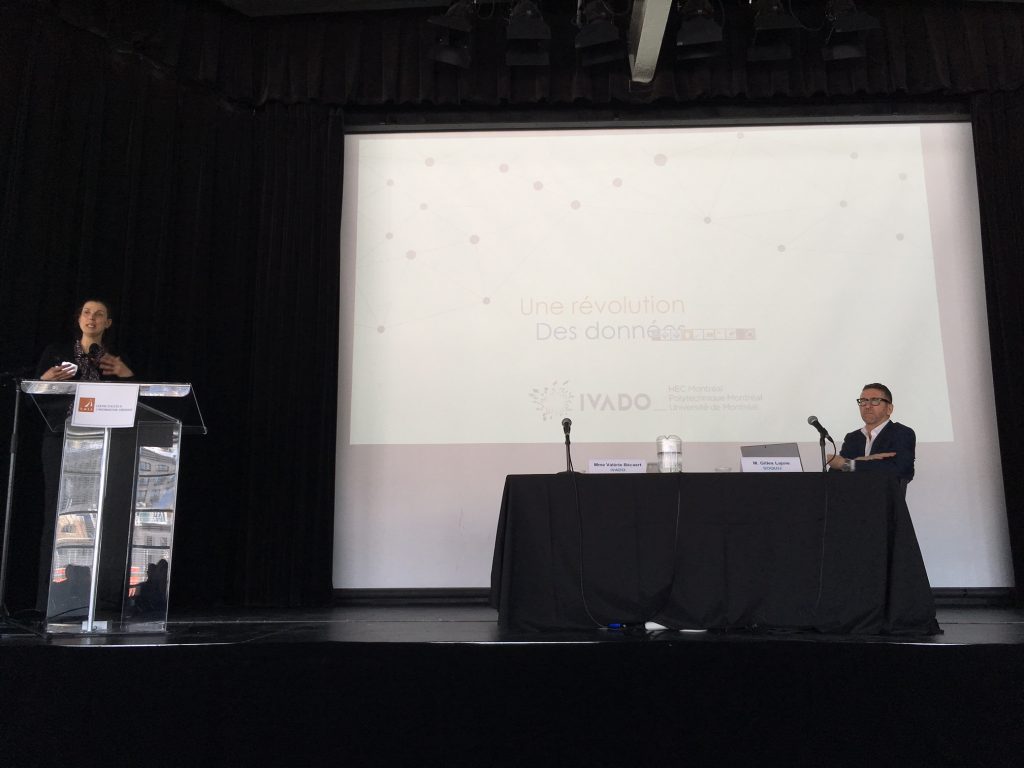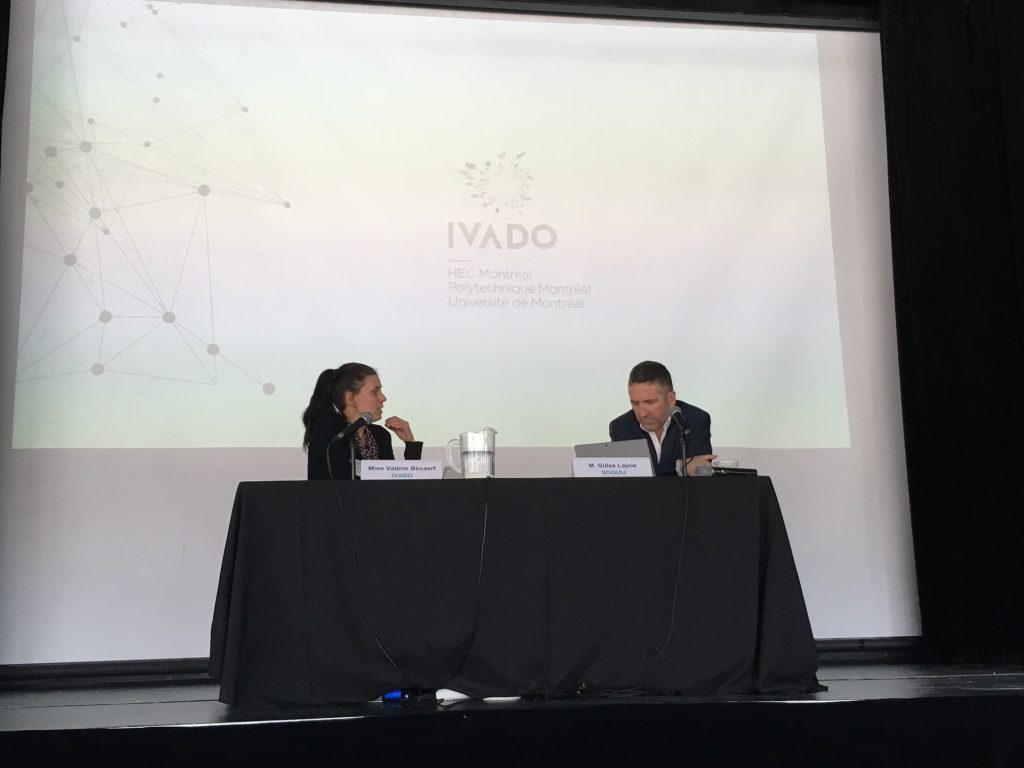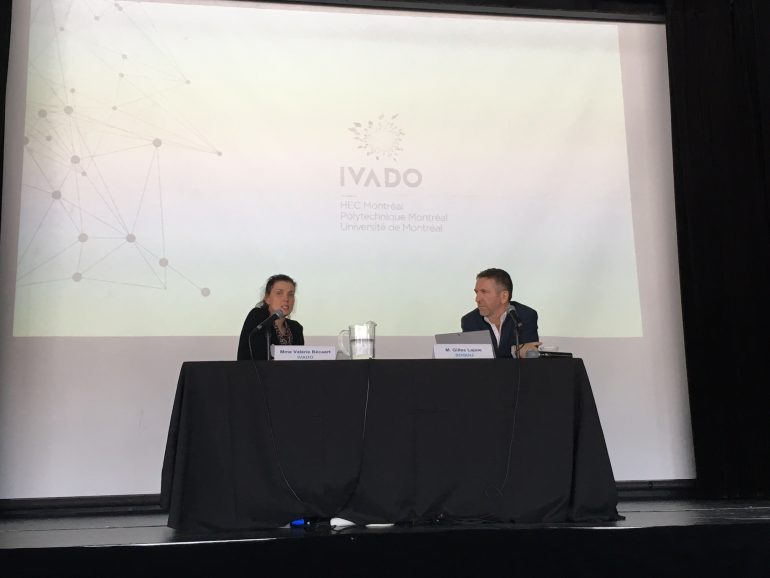Pour lire cet article en français, cliquez ici.
The Young Bar of Montreal once again organized its Legal.IT event, a one-day conference at the Montreal Science Centre that brings together legal and technological experts to discuss the issues that combine the two fields.
One of the presentations, Artificial Intelligence (AI) and Justice, was hosted by Valérie Bécaert, General Director of IVADO, and Gilles Lajoie, general manager of the Société québécoise d’information juridique (SOQUIJ). “[SOQUIJ] is preparing to adopt a strategic plan involving a radical change, and at the heart of this radical change, we will make sure to adopt machine learning and artificial intelligence,” said Lajoie.
Bécaert offered a 101 course on the evolution of AI from the advent of autonomous vehicles, the appearance of voice commands, and the famous GO champion beaten by an algorithm and big data.
“We are in the next industrial revolution…it is a revolution in which machines will increase the cognitive capacities of humans,” said Bécaert. “It is the economy of digital intelligence.”

Montréal has been in the spotlight in terms of AI especially since IVADO received a $93 million grant, and since many of the city’s leading researchers have been selling Montreal’s AI hub to the world.
“By combining [deep learning and operational research], we will reach the next level of AI.”
For the legal department, this next level could be achieved by increasing the value of the data — for example, by means of intelligent search that takes into account the research context.
“[We] use all the data analysis knowledge that has been developed for transport to optimize routes — so networks — and look at a problem by analyzing the links between things,” said Bécaert. “We can do the same type of analysis on contracts.”

One of the major uses of AI is in prediction. For example, a lawyer could discover the probability of winning a case by noting its parameters, while AI could offer the possibility of changing strategy to increase the chances of winning.
“Montréal is making a major shift in open data,” adds Lajoie. “Certainly, this is something we will look at, how we can combine these pieces of information to improve our decisions and access to justice in Quebec.”
However, innovation is slowed down by the same legal department. “[In technological innovation], we are in a no man’s land, not much has happened,” said Bécaert. “There is a lot of uncertainty about everything that is related to data: to whom does it belong? What can I do with it? Companies are very cautious and do not necessarily want to act as jurisprudence — and what prevents us from moving forward, it is often the legal department!”
Overall, the event showed that there’s a crying need for collaboration between the two fields to impel the Civil Code.


